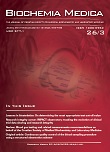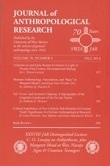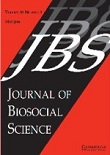Šupe-Domić, D., G. Milas, I. Drmić Hofman, L. Rumora, I. Martinović Klarić:
 Dnevni profil salivarnog kortizola: Uvid iz Hrvatskog istraživanja stresa u kasnoj adolescenciji (CLASS)
Dnevni profil salivarnog kortizola: Uvid iz Hrvatskog istraživanja stresa u kasnoj adolescenciji (CLASS)
Cilj rada je bio istražiti bazalnu aktivnost hipotalamičko-pituitarno-adrenalne osi u kasnoj adolescenciji. Istraživanje se temeljilo na probabilističkom dvoetapnom uzorku klastera stratificiranog prema tipu škole (četverogodišnje gimnazije/strukovne škole) iz četiri najveća grada u Hrvatskoj. Nakon postupka isključivanja ispitanika prema standardima istraživanja salivarnog kortizola, uzorak je činilo 903 ispitanika starosti od 18 do 21 godine. Kortizol se uzorkovao tijekom radnog dana u tri različite vremenske točke, po buđenju, 30 do 45 minuta nakon buđenja i neposredno prije spavanja. Spol te ritam buđenja i lijeganja su se pokazali glavnim prediktorima bazalne aktivnosti salivarnog kortizola u istraživanom uzorku. Djevojke su imale više koncentracije jutarnjeg kortizola te više vrijednosti odgovora kortizola po buđenju, izraženije cirkadijalno smanjenje kortizola i veće površine ispod krivulje kortizola u odnosu na mladiće. U ispitivanom uzorku utvrđeno je pet klastera ispitanika različitog ritma buđenja i lijeganja. Ispitanici koji su se ranije ustajali i bili dulje budni („ranoranioci“, „noćobdije“) imali su snažniji odgovor kortizola na buđenje, niže cirkadijalno smanjenje kortizola i veće površine ispod krivulje kortizola u odnosu na ispitanike koji su se ustajali kasnije i bili kraće budni („noćne ptice“, „spavalice“, „trnoružice“). Također, istraživanje je ukazalo na važnost manje izraženih, ali statistički značajnih prediktora bazalnog ritma salivarnog kortizola u otkrivanju ranjivih skupina u kasnoj adolescenciji, primjerice konzumiranje droga kod mladića i izostanak prijateljskih veza kod djevojaka.
Biochemia Medica 26 (3):293-464, 2016.
Peternel, L., A. Malnar, I. Martinović Klarić:
 Cultural importance of two lifestyle sub-domains (education & professional life and intimate & family relationships) in Croatian youth: Significance for holistic anthropological research.
Cultural importance of two lifestyle sub-domains (education & professional life and intimate & family relationships) in Croatian youth: Significance for holistic anthropological research.
In this study the construct of “the good life” is explored among upper secondary school seniors from two types of schools in four Croatian cities. The information collected through free-listing during the first phase of the field work was used to create a set of structured questions contained in the questionnaire, as a part of the survey in the second phase of data collection. The results of the study demonstrate the usefulness of utilizing cultural consensus theory in analyzing the structure and distribution of cultural knowledge about education, work, intimate and family relationships in a large and heterogeneous sample of students. The study also confirms the purposefulness of extending cultural consensus with residual agreement analysis for capturing differing cultural emphasis within the shared cultural knowledge of the entire group. Free-listing proved as an elegant ethnographic technique for eliciting operationally explicit measures of two lifestyle sub-domains. This study design represents a solid baseline for our continuing holistic anthropologic research involving bio-cultural modeling. However, in-depth interviewing is necessary for more comprehensive understanding of the cultural model of good life domain and its various sub-domains.
Journal of Anthropological Research 70 (3):411-437, 2014.
Peternel, L., A. Malnar, I. Martinović Klarić:
 The analysis of cultural consensus model of two good life sub-domains - health & well-being and migration & socio-economic milieu - in three population groups from Croatia.
The analysis of cultural consensus model of two good life sub-domains - health & well-being and migration & socio-economic milieu - in three population groups from Croatia.
In this study the construct of good life is explored among upper secondary school seniors, their parents and professors by applying the analysis of cultural consensus model. A total of 469 students, 474 parents and 158 professors from four Croatian cities participated in the study. The information collected through interviewing and freelisting during the first phase of the filed work was used for creating a set of structured questions contained in the questionnaire, as a part of the survey in the second phase of data collection. In this study the results are reported on two good life sub-domains: health & well-being and migration & socio-economic milieu. The obtained results indicate heterogeneity of studied sample groups, incomplete inter-generational transmission of cultural values and examples of two subgroups that resist cultural norms and do not comply to the dominant “competence-as-sharing” paradigm. The value of testing cultural consensus model based on the emic approach and locally significant phenomena is demonstrated for planning and conducting holistic anthropological research.
Journal of Biosocial Science, 47 (4):469-492, 2015.